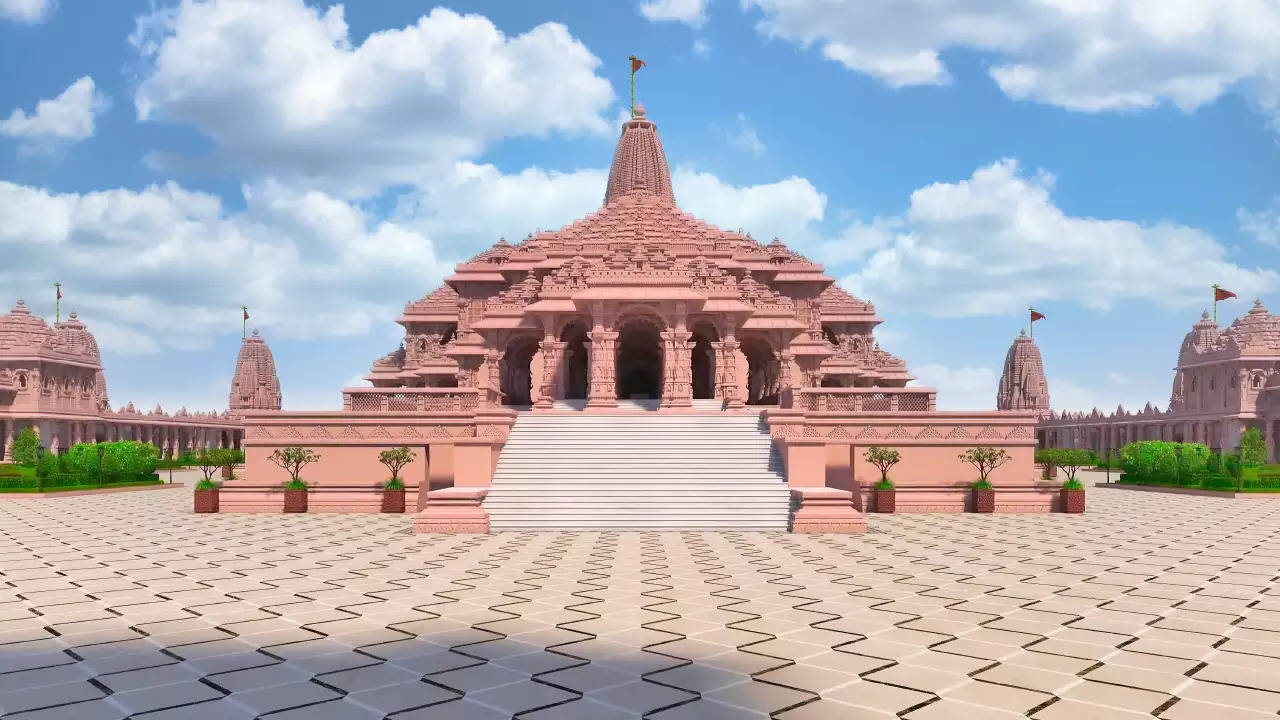 |
|
The Bharatiya Janata Party (BJP) has announced plans to construct a Ram Temple in West Bengal, a move closely tied to a recent controversial statement made by a Trinamool Congress (TMC) MLA regarding the Babri Masjid. The announcement, made by BJP's Berhampore organisational district president, Shakharav Sarkar, promises a temple built on a design mirroring the recently inaugurated Ayodhya Ram Temple. The proposed construction, estimated to cost ₹10 crore, is scheduled to commence on January 22, 2025, marking the one-year anniversary of the Ayodhya temple's inauguration. The BJP’s decision to pursue this project in West Bengal, a state governed by the TMC, adds a significant layer of political complexity to the situation. The timing of the announcement, immediately following the TMC MLA's comments about the Babri Masjid, strongly suggests a deliberate political strategy aimed at countering the narrative surrounding the ongoing debate about the demolition and subsequent legal battles.
The controversy surrounding TMC MLA Humayun Kabir's remarks on the Babri Masjid provides crucial context to the BJP's announcement. Kabir's comments, while acknowledging the emotional significance of the Babri Masjid for Muslims, were interpreted by some as inflammatory. Although the TMC distanced itself from Kabir's statements, classifying them as personal opinions, the damage was already done. The BJP seized the opportunity to frame their Ram Temple initiative not just as a religious endeavor, but also as a counter-narrative to perceived communal tensions and accusations against the ruling TMC party. This strategic move highlights the deeply intertwined nature of religious symbolism and political maneuvering in the Indian context. The BJP’s messaging deftly exploits religious sentiment to bolster its political standing and potentially gain traction among Hindu voters in the state.
The BJP's announcement, however, has ignited a firestorm of debate and criticism. Critics argue that the construction of a Ram Temple in West Bengal at this juncture is a blatant attempt to polarize the electorate along religious lines, potentially exacerbating existing communal tensions. Opponents question the timing of the project and raise concerns about the potential financial implications, especially considering the already strained resources available for development projects in the state. Furthermore, the BJP's framing of the project as a response to the TMC MLA's comments fuels concerns about the politicization of religious sentiment. This approach raises ethical questions about the appropriateness of using religious symbols for purely political gains. The long-term consequences of such actions remain to be seen, but the potential for increased communal division and political unrest is undeniable.
The strategic implications of the BJP's announcement extend beyond the immediate political landscape of West Bengal. The move reflects a broader national strategy to consolidate Hindu votes and project a strong image of Hindutva ideology. By constructing a temple modeled after the Ayodhya Ram Temple, the BJP subtly reinforces its connection to a powerful religious symbol and its role in the fulfillment of a long-standing Hindu aspiration. This action could influence the party's electoral prospects in future state and national elections, given the importance of religious sentiment in shaping voting patterns in India. The potential impact of this strategic move on the broader political discourse across India remains to be fully assessed, but it undoubtedly signifies a significant development in the nation's ongoing political and religious landscape.
In conclusion, the BJP's announcement of a Ram Temple in West Bengal is far more than a simple construction project. It is a complex political maneuver intricately woven into the fabric of ongoing religious and political debates in India. The decision, heavily influenced by the TMC MLA's controversial remarks, serves not only as a potential tool for bolstering the BJP's political standing in West Bengal but also reinforces the party's national agenda of consolidating Hindu votes and propagating Hindutva ideology. The long-term consequences of this strategic move, including the potential for increased communal tension and the impact on broader political dynamics, demand careful scrutiny and further observation.
Source: Ram Mandir In Bengal? BJP's Big Announcement After TMC MLA's Babri Masjid Remark
